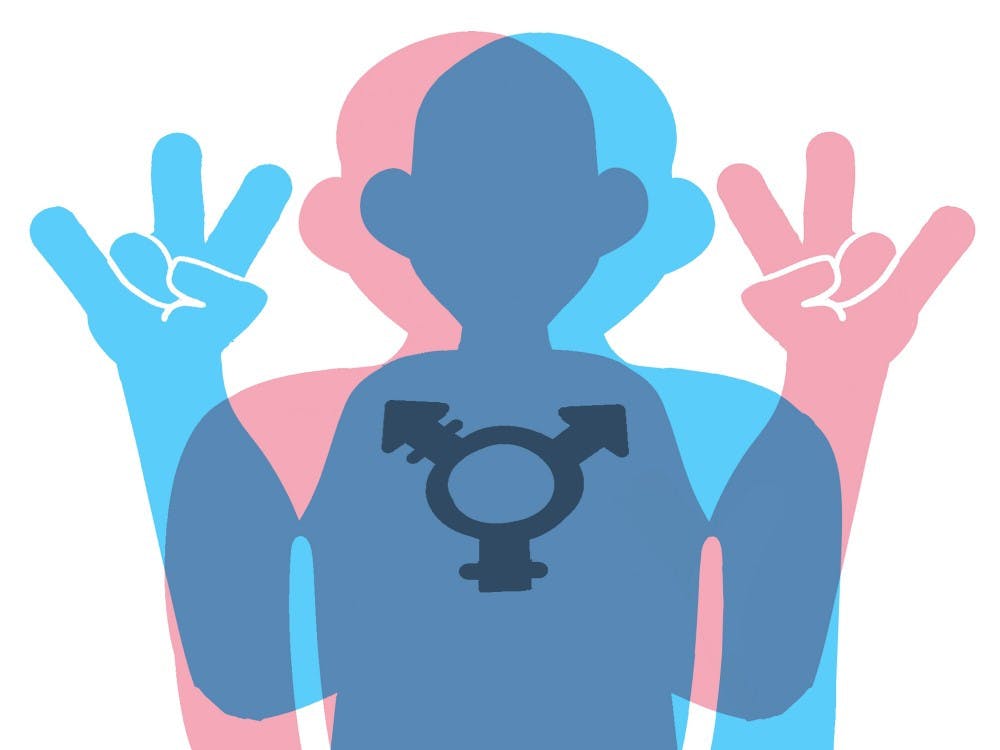A proposed bill lays out definitions and standards for gender and biological sex that would be implemented into state statutes, orders, regulations and other logistical components of the Arizona government.
House Bill 2062, regarding "Sex-Based Terms in Law," was introduced to the Arizona House of Representatives for a first reading on Jan. 13. Since then, the bill has made steady progress through the state legislature, now awaiting a third reading from the Arizona Senate.
These new definitions rely on physical reproductive characteristics of individuals, for instance, the language of the bill defines "sex" as "a person's biological sex, either male or female, at birth." This has prompted an outcry from LGBTQ+ students, along with members from campus activists. Although it is likely to be vetoed, students said the progression of the bill plants worries.
"Passing this legislation isn't gonna just make people like me go away," said Gem Wolf-Schwaiger, a junior studying communication and political science and the vice president of new membership for the Young Democrats at ASU. "Legally, I might not exist as I am, but I'm still existing. It really just reinforces this idea that there's only two ways to be."
Confusion regarding the legislation was furthered by why these strict definitions were necessary — the bill states that the "purpose of this act is to bring clarity, certainty and uniformity to the laws of this state."
However, individuals like Randy McDonald, the supervising attorney at the post-conviction clinic at the Sandra Day O'Connor College of Law, point out the counterintuitive effect of this legislation on its alleged purpose.
"Part of the absurdity here is just how hard it is to define these terms, and how broad, when they've defined them, they end up being," McDonald said.
These complexities that the bill brings are furthered in regard to intersex individuals, who were not listed anywhere in the proposed bill.
"You have intersex people who are now just labeled entirely as genetic anomalies and just don't legally exist anymore," Wolf-Schwaiger said. "You're gonna run into a whole bunch of problems if you don't have a system which accounts for these things."
The implications of this legislation on transgender and nonbinary individuals are equally as drastic, especially since the University student body would be impacted by this bill's language.
Bryce Askew, a senior studying chemical engineering and the chair of Young Democratic Socialists of America at Arizona State University, explained his concerns "for trans people to change their names at universities" following this legislation, along with concerns for their well-being.
"You have people at the University who get their trans healthcare from ASU Health — for example, I know several people in our club who get their healthcare from ASU Health, and that could be at potential risk because of this," Askew said.
The implementation of this bill at the University has ideological impacts for students like Wolf-Schwaiger as well.
"ASU has always prided itself as a free speech University," Wolf-Schwaiger said. "By restricting how people can identify and how they can refer to themselves and how the systems will refer to them, you undermine the ideas that the University was founded on."
Despite these concerns, individuals like McDonald are confident the legislation will not reach enough support to be passed and enacted by Gov. Katie Hobbs.
However, McDonald, Askew and Wolf-Schwaiger believed that mere proposal and discussion of the bill brings forward a slew of negative impacts, even if it is never enacted.
"It opens the gates, so to say, to continue to pursue legislation like this or legislation that goes even farther," Askew said.
McDonald furthered this point, providing more insight on the role of this bill as a political tool as well, calling it a "political cudgel" against those impacted.
This fear and frustration has prompted some to look to the University for support with students that would be impacted by the legislation.
"ASU has a huge responsibility toward every single one of us who are paying tuition," Wolf-Schwaiger said. "If we can't learn adequately, because we are having to have constant battles about how we're referred to, that's going to do so much harm to our ability to educate ourselves."
However, University members still remain confident and optimistic in the methods of support that exist both within campus grounds and beyond it. Askew said spaces such as the Rainbow Coalition and YDSA can offer resources regarding queer healthcare and support.
Other students, like Wolf-Schwaiger, hope to see existing groups and advocacy on campus used to create even more support opportunities for LGBTQ+ students, mainly through the establishment of a "Queer Center" on campus.
READ MORE: Progress, piece by piece
"This (center) has been an idea and something that a lot of queer people at ASU have been fighting for since 2006," Wolf-Schwaiger said. "We need our own space on this campus."
Above these strategies though, McDonald viewed the spread of information as one of the most powerful tools in the fight for students.
"A lot of what these groups can be doing right now and are doing is education," McDonald said. "That is the most courageous thing that they could do right at this moment."
Edited by George Headley, Abigail Beck, Tiya Talwar and Natalia Jarrett.
Reach the reporter at sluba@asu.edu and follow @samluba6 on X.
Like The State Press on Facebook and follow @statepress on X.
Sam is a freshman studying political science with a minor in justice studies. This is his second semester with The State Press. He has also worked as editor-in-chief of his high school newspaper.




